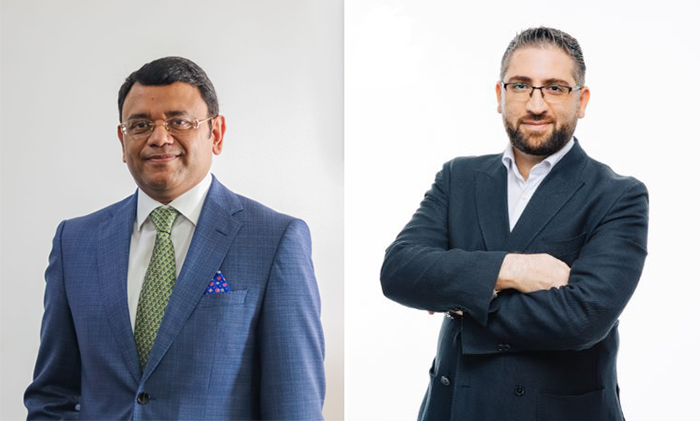Technology has significantly impacted lives and economies over the last few years and is now giving rise to new modes of transactions and even currencies. New modes of electronic payment are becoming increasingly popular, and cryptocurrencies have captured the imagination and attention of individuals, investors, the banking industry, and Governments the world over.
According to a new update to the International Data Corporation (IDC) Worldwide Blockchain Spending Guide, blockchain spending will continue to grow at a robust pace throughout the forecast period with a five-year compound annual growth rate (CAGR) of 46.4%, reaching a total of nearly $17.9 billion in 2024.
In this environment, not all attention to this new technology is good. Arshad Khan, Co-founder and CEO at Arabian Bourse, shares his insights and expert recommendations on the need to stay vigilant whilst engaging with any sort of virtual asset activities. As a Multilateral Trading Facility (MTF) and Custodian based in Abu Dhabi Global Market (ADGM), Arabian Bourse Limited has received initial approval from Financial Services Regulatory Authority of ADGM in its process to becoming the fully regulated, virtual asset MTF and custodian.
According to Kaspersky’s recent report on financial threats in 2021 which highlights how this year, many financial cybercriminals are likely to target Bitcoin more often, while other cybercriminals will switch to transit cryptocurrencies when demanding payment from victims for enhanced privacy.
As cybersecurity experts continue to formulate more secure solutions for centralized exchange models that offer a level of security that individual investors can’t match, Arshad Khan commented saying, “It is essential for clients to perform their role as well in maintaining the security of their accounts and assets. This includes preserving the confidentiality of their passwords and activating two-factor authentication on their accounts. Choosing difficult passwords with a diverse mix of characters is also advisable for clients. Whitelisting their wallet accounts is also another strong security layer which is recommended for their exchange accounts. Moreover, to receive and send their assets, clients must utilize the correct wallet address and double-check their transactions before confirmation, to avoid losing their assets in the given transactions. Before opening an account on a platform, clients should also perform due diligence on the exchange to ensure its reliability and trustworthiness”.
Maher Yamout, Senior Security Researcher at Kaspersky said, “Cryptocurrency has come a long way in a relatively short span of time, and such rapid, unregulated growth has meant that most people and institutions are learning as they go. As much as it is tempting to equate today’s environment to the Gold Rush of yesteryears, the fact that it is digital and distributed means that it is entirely democratized in terms of both opportunities and risks. At Kaspersky, we have tagged some of the potential weak points, hazards, and facts to consider, together with some tips to stay safe. Like any financial product will warn you, investment is subject to risk, so it falls on each one of us to stay secured.”
Kaspersky’s checklist of the risks associated with cryptocurrencies follow:
- Changing payment information for phishing – When trying to transfer money, malware can easily replace the recipient’s address in the clipboard with another one. It is important to be vigilant and double-check an address after copying it.
- Hacking a payment gateway – Using a genuine payment gateway with the correct address can also result in a loss of money. In 2017, the Web wallet or the Ethereum Classic cryptocurrency, with the original address https://classicetherwallet.com/ started stealing money from users’ wallets. These hackers had used social-engineering methods to convince the hosting provider that they were the real domain owners. After gaining access, they started intercepting cash flows.
- Loss of a wallet file – Most users store their cryptocurrency wallet files on their computers. This can be stolen using malware, or even lost if the hard disk crashes. The more seasoned users make hard copies of their secret key and purchase USB hardware wallets.
- Insecure ICOs – Investing in Blockchain or cryptocurrencies became very popular among cryptocurrency holders back in 2017. This type of fundraising is called an ICO — Initial Coin Offering. More than $1.7 billion was raised through ICOs in 2017. The problem is that since the cryptocurrency market is not regulated, there are no risk assessment mechanisms, and there is no guarantee of return on investments.
- Changing a user address – The collection of funds in an ICO usually opens at a specified time and ends when the required amount has been collected. The collection address is posted on the project website when it starts. Hackers can get access to the project website and as soon as the collection opens, they can replace the address with their own.
Alongside the risks, Cryptocurrencies have proven their potential to dramatically change lives. Use the following tips from Kaspersky to stay secure when dealing with crypto.
- Always verify a Web wallet’s address, and do not follow links to an Internet bank or Web wallet.
- Before sending, double-check the recipient’s address (at least check the first and last characters), the amount being sent, and the size of the associated fee.
- Write down a mnemonic phrase that allows you to recover a crypto wallet if you lose it or forget your password.
- Keep calm and make informed decisions when crypto investing; do not be rushed or in a panic.
- Always remember that crypto investment is very risky. Do not invest more than you are ready to lose at any moment. Experts will always advice diversifying your investments.
- Use proven cryptocurrency hardware wallets.
- Run high-quality antivirus protection to protect the devices you use to access crypto wallets, trade on crypto exchanges, and so on.


COMMENTS